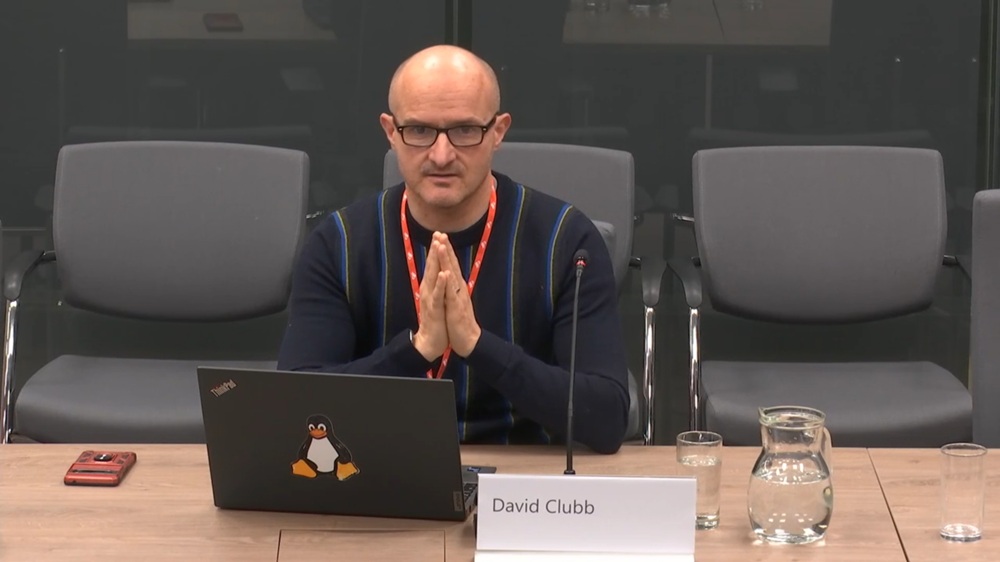Uncertain future for Welsh infrastructure commission

Chris Haines, ICNN Senedd reporter
A commission set up to advise on Wales’ infrastructure needs over the next 80 years does not know its own future beyond 2026, a committee heard.
David Clubb, chair of the National Infrastructure Commission for Wales (NICW), told the Senedd’s environment committee no formal commitment has been given on its future.
He said: “My feeling is the commission in its current form will be maintained until May 2026 but because it’s a non-statutory body, there’s no guarantee that an incoming minister might say ‘well that’s fulfilled its task – now it’s time to close it down’.”
Llŷr Gruffydd, the Plaid Cymru chair of the committee, asked: “Is there not an irony that the commission charged with looking 80 to 100 years into the future doesn’t even know if it’s going to be around next year?”
“You’re allowed to say ‘yes’,” he joked, with Dr Clubb replying that it is a political decision.
‘Succession planning’
NICW was established by the Welsh Government in 2018 as an independent advisory body to make recommendations on Wales’ longer-term infrastructure needs.
According to an internal audit service report, NICW is the only infrastructure commission in the world set up as a non-statutory body which means it is not mandated by the law.
Dr Clubb said: “We’re trying to talk about succession planning as well, trying to look ahead to the next commission to help to shape what their work will focus on over the next years.”
He added: “We are mindful of our current appointments coming to an end in December this year. What I’m very keen to do is avoid everybody leaving at once … so we’re encouraging some people that want to, to stay on and giving the opportunity for others to leave.
“I still don’t know quite what’s going to happen with my own term, so I’ve had some suggestion it might be helpful for me to stay on until after the election next year.”
‘Superficial’
Pressed about independence, Dr Clubb said the commission continues to push back on “unsatisfactory” responses from ministers to 2023 recommendations on renewable energy.
Criticising ministers’ appetite for change, he said: “That process was definitely impacted by the change of ministers. First of all our recommendations were not responded to for just over six months actually, so it went over the normal agreed time limit.
“We thought the responses were rather superficial, so they seem to respond to our headline recommendations without looking at the considerable amount of detail behind them.”
Dr Clubb, who holds a doctorate in physics, said the commission had a good meeting with then-economy minister Jeremy Miles but “within a month, he was gone”.
He expressed frustration at a revolving door of ministers and portfolios in Cardiff Bay, with Ken Skates filling in over summer before Rebecca Evans was appointed in September.
’Opportunities lost’
“There was an urgency about the recommendations,” said Dr Clubb, who warned opportunities were lost due to delays within the Welsh Government.
He said policy in England made air-source heat pumps far easier to install.
Dr Clubb, who was appointed in 2021, warned: “Effectively, we saw that Welsh taxpayers were subsidising English homeowners to have renewable energy installed where it should be, in a sense, the other way around if Wales is the poorer country.
“By now, the situation has changed in England and in Wales and there are going to be changes made but maybe a year-and-a-half or two years later than we would have liked.”
Conservative Janet Finch-Saunders asked about potential conflicts of interest at the commission which has a draft budget of £400,000 for next year.
‘Conflicts of interest’
In 2023, Nation.Cymru revealed Steve Brooks – one of the eight commissioners – was working as a consultant for Deryn, a lobbying firm that advises renewable energy clients
Dr Clubb said: “We were judged to be dealing with conflicts of interest appropriately,” adding that the Welsh Government audit gave the commission a “clean bill of health”.
He criticised a lack of vision, with Welsh ministers failing to keep a commitment to produce a national renewable energy plan by the end of 2024 due to changes at a UK level.
He added: “We could go further and faster, we could have greater ambition. But I think if we don’t have that vision piece then it’s difficult for us as an infrastructure commission – as developers – to know really in what direction we’re heading.
“It seems that rather than providing leadership on energy, [the] Welsh Government is more responding to external influences.”
Support our Nation today
For the price of a cup of coffee a month you can help us create an independent, not-for-profit, national news service for the people of Wales, by the people of Wales.






This excellent idea should be put on a statutory basis and commissioned to prepare plans for all infrastructure renewal and maintenance and budgeting outlines.
Classic example of Welsh Government approach. It was set up (a) because there was one in England; and (b) to be a cheerleader for the Future Generations agenda and related stuff like 20 mph. Its reports are thin to be the point of invisible.